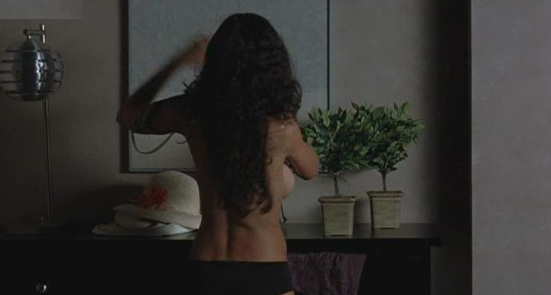“Emmanuelle” Review: A Lush Exploration of Desire, But Lacks Depth
Midway through Emmanuelle, French director Audrey Diwan’s third feature, a sleazy producer engages the title character at a hotel spa. He states, “There are only two types of guests who frequent luxury hotels: those who are on the hunt and those who are on the run.” This premise highlights the film’s exploration of desire and connection, positioning Madame Emmanuelle (played by Noémie Merlant) as the former—a sensual seeker navigating a world filled with fleeting encounters and emotional detachment.
A Shift in Perspective
Unlike Diwan’s acclaimed character study The Happening, which focused on a woman’s struggle for autonomy in mid-20th-century France, Emmanuelle is based on Emmanuelle Arsan’s 1967 novel, which previously inspired a very different adaptation in 1974 that leaned heavily into soft-core porn. Diwan’s reinterpretation aims to infuse the narrative with a distinctly feminine perspective, delving into Emmanuelle’s quest for pleasure while emphasizing her independence from the men (and women) she encounters.
A Provocative Opening
The film plunges viewers into the action, starting with Emmanuelle on a first-class flight, dressed to impress. Her seductive encounters begin in the airplane restroom and continue at the luxurious Rosefield hotel in Hong Kong, where she effortlessly ensnares a couple into a love triangle. However, the initial thrill soon fades; as Emmanuelle achieves her desires, her expression turns vacant. This disconnection raises the central question of the film: how can a seducer find genuine enjoyment in sex?
The Search for Fulfillment
Emmanuelle follows its titular character, a sensual working woman torn between her desires and the pursuit of true satisfaction. Diwan attempts to treat this exploration of pleasure seriously, framing Emmanuelle’s journey as a professional evaluation of the hotel’s amenities. Emmanuelle is, in fact, a “shark”—a quality control inspector sent to assess the opulent Rosefield, all while keeping an eye on the hotel’s aloof manager, Margot (Naomi Watts), who is under scrutiny for her alleged incompetence.
Peripheral Narratives
While Margot’s storyline could add depth, it often feels secondary to Emmanuelle’s pursuit of pleasure. The film’s polished and staged sex scenes ultimately hinder the emotional resonance, leaving Emmanuelle in a state of perpetual anticipation. A faceless American engineer, Kay, played by Will Sharp, becomes a symbol of this elusive satisfaction. Emmanuelle’s obsession with Kay’s mystery illustrates her struggle to grasp the complexities of her desires.
Atmospheric Yet Hollow
Diwan’s approach favors atmospheric storytelling, reminiscent of Wong Kar-wai’s work, yet the film often lands in a void where narrative depth is overshadowed by predictability. While the cinematography captures the sterile elegance of the Rosefield, the dialogue frequently falls flat. Moments meant to convey intimacy and tension often feel contrived, reducing Emmanuelle’s emotional arc to mere clichés.
Subtle Symbolism and Missed Opportunities
The film’s aesthetic choices, such as the decaying floral arrangements in the hotel lobby, serve as metaphors for the fading vibrancy of Emmanuelle’s experiences. Additionally, the pervasive surveillance culture within the hotel—highlighted through CCTV and cellphone cameras—adds an intriguing layer. The film’s most striking scene features Emmanuelle silently photographing herself in Kay’s room, capturing a moment of self-exploration that pulses with life, albeit faintly.
Conclusion
Despite its lush visuals and provocative premise, Emmanuelle ultimately struggles to deliver a satisfying emotional journey. Diwan’s artistry is evident, but the film’s lack of substance and nuanced character development leave much to be desired. As you watch this anticlimactic exploration of sensuality, you may find yourself yearning for deeper engagement—an elusive quality that mirrors Emmanuelle’s own quest for fulfillment.
Rating: C+




